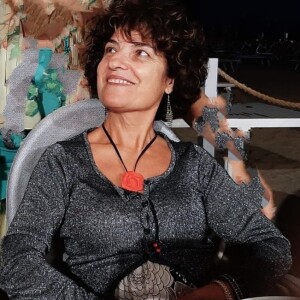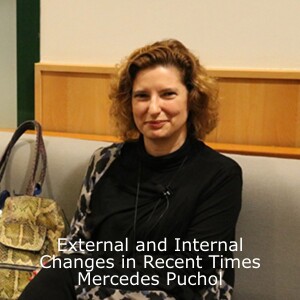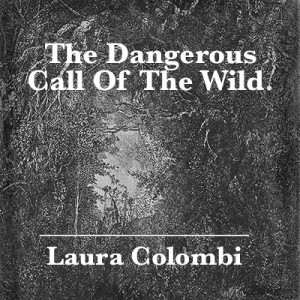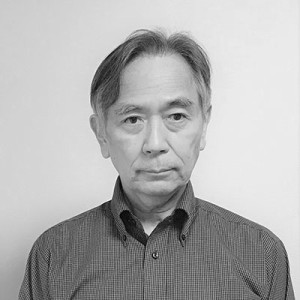Talks On Psychoanalysis
dissociation
Episodes

Tuesday Mar 21, 2023
Tuesday Mar 21, 2023
What is the relationship between the mind and the body, and how does it shape our understanding of the self? In this episode, Rosa Spagnolo presents her reflections on the topic, published in her recent book, written with Georg Northoff. In the book, she delves into how out-of-body experiences can shed light on the complex dynamics between the self and the world. She examines the relationship between the body and the brain, the role of time and space in shaping our experience of the self, and the intersection between psychoanalysis and neuroscience. Along the way, she touches on the potential implications of virtual reality on our sense of self.
Rosa Spagnolo, MD, Child Neuropsychiatrist; Developmental Psychotherapist; Psychoanalyst, Full Member of the Italian Psychoanalytic Society (SPI), IPA Member. She is Co-Chair and co-founder of the Italian Psychoanalytic Dialogues (IPD) association, which organizes annual Rome Conferences, on psychoanalytic and neuroscientific issues. She is a member of NPSA and chair of the "Italian Group of NPSA". She is chair of the IPAWEB page: the Psychoanalysis in the Age of Neuroscience and chair of the SPIWEB page of Neuroscience.
Teaches "Psychology of Nutrition" and "Treatment of Eating Disorders" at the University - Tor Vergata -, Rome, Master II level in "Diagnosis and Treatment of Eating and Weight Disorders". Teaches "Psychoanalysis and Culture" at the Graduate School of Psychoanalytic and Group Analytic Psychotherapy. Works in Rome at the Filippo Smaldone Institute for the rehabilitation of deafness, learning and speech disorders, neurodevelopmental disorders. She is the author of numerous publications as well as a conference speaker and lecturer on neuropsychiatric developmental disorders and psychoanalytical topics.
Books
Spagnolo R. (2012): La forza delle immagini attraverso la catena associativa dell’analista. In: Domenico Chianese e Andreina Fontana (Eds), Per un sapere dei sensi. Immagini ed estetica psicoanalitica. Roma: Edizione Alpes, 2012
Spagnolo R.(2016) : La ricerca empirica sul sogno, in: Antonello Colli. Psicoterapia Psicodiamica (pp. 232-234). Roma : Carrocci Editore, 2016
Spagnolo, R. (2017). An unexpected Pathway for Interpsychic Exchange: Music in the analysis of Young Adult. In B.N. Seitler & K.S. Kleinman (Eds.), Essays from Cradle to Couch (pp. 341-357). IPBooks, Astoria: NY.
Spagnolo R. (ED) (2018): Building Bridges, The impact of Neuropsychoanalysis on Psychoanalytic Clinical Sessions. Routledge, London and New York. Nominato al Gradiva Awards, New York, 2019
Spagnolo R. & Northoff G.(2021): The Dynamic Self in Psychoanalysis. Neuroscientific foundations and clinical cases. Routledge, London and New York
Spagnolo R. & Northoff G (2022): Il Sè dinamico in psicoanalisi. Fondamenti Neuroscientifici e clinica Psicoanalitica. Franco Angeli Editore.
Spagnolo R. (2007) "Chantal" - Maremmi Editore, Firenze.
This episode is available also in Italian
This episode was read by Eleonora Maruca.Editing and Post-Production: Massimiliano Guerrieri.

Monday Nov 21, 2022
Monday Nov 21, 2022
How do recent external and internal changes emerge in the theoretical-technical and clinical understanding of psychoanalysis today? How to think psychoanalytically about the topic of war today more than ever?
In this episode entitled External and internal changes in recent times, Mercedes Puchol reflects, among other things, on the impact of these changes in relation to remote analysis, and considers the notion of analysability, originally postulated by Carlos Paz in 1971, to be fundamental for thinking about all the challenges and questions that remote analysis raises.
Finally, the author, faced with the level of destruction and pain that the Russian invasion of Ukraine has caused, reflects on the importance of identifications in the "construction of emotional ties that operate against war (Freud, 1933)".
Mercedes Puchol is a clinical psychologist and psychoanalyst. She lives and works in Madrid with adults, children and adolescents. She is training analyst of the Madrid Psychoanalytical Association (APM) as well as its current President. She is a member of the Organising Committee of the Spanish Language Psychoanalysts Encounters and of the Committee of the European Psychoanalytic Conference for University Students (EPCUS).
Link to the paper https://docs.google.com/document/d/1mSeD-BL9yahdsV3XzfbovanCwRnXkp8S/edit?usp=share_link&ouid=112457875385152358388&rtpof=true&sd=true
This episode is available also in Spanish
This Podcast Series, published by the International Psychoanalytical Association, is part of the activities of the IPA Communication Committee and is produced by the IPA Podcast Editorial Team. Head of the Podcast Editorial Team is Gaetano Pellegrini. This episode was produced in collaboration with Ana Maria Martin Solar.
Editing and Post-Production: Massimiliano Guerrieri.

Tuesday Jun 22, 2021
Tuesday Jun 22, 2021
In preparation for the 52nd IPA Congress, we will present a number of episodes dedicated to the activities that will take place and its theme: THE INFANTILE: ITS MULTIPLE DIMENSIONS.
Please visit ipa.world/theinfantileonline to explore the extensive program and to register. The 52nd IPA Congress will be held online from July 21st to August 1st, and by visiting our program you can set your schedule to suit your personal time zone.
In this episode we’ll listen to Laura Colombi talking about the paper titled: “The dangerous call of the wild. Clinical considerations about dissociation into fantasy”.
Here she discusses how fantasizing, understood as a flight into fantasy, belongs to a type of mental functioning as opposed to that of imaginative fantasy. The Author follows Winnicott’s idea that withdrawal into fantasy can take on a dissociative quality, which is structured early on as a defensive solution following the loss of hope in object relations.
Such defence becomes the foundation for a dangerous enclave in which the subject ends up enclosing himself, experiencing an illusory self-sufficiency which is nourished with omnipotence and sensory pleasure.
From this perspective, the Author suggests that the withdrawal into fantasy must be understood as a risky factor of emptying the Self or of a crystallization into psychopathological structures. This way, it could become an automatic activity of ‘non-thought’ that replaces the working-through processes necessary for the development of the mind.
Clinical material, omitted in the podcast, of both children and adults will illustrate how the flight into fantasy, over time, may take the form of an anti-relational realm of the mind, compromising the operations necessary for the integration of psychic life.
Laura Colombi is Training Analyst of the Italian Psychoanalytical Society and Analyst for Children and Adolescents. She has been working on the educational and theoretical levels on disorders related to the pathology of primitive psychological organization and weaves together interests from the clinic of children and adult patients with severe psychopathology and identity disorders. On the topic of 'dissociation into fantasy' she has published in the International Journal of Psychoanalysis and in the Italian Psychoanalytic Journal.
This episode is available also in Italian
Clearing in the Forest (1880), Rodolphe Bresdin. Etching on cream laid paper. The Art Institute of Chicago.
Debussy Rêverie, Constantin Stephan.
We are pleased to announce that Talks On Psychoanalysis has been selected in the Top 15 Psychoanalysis Podcasts list by Feedspot and that in this moment we are first in the ranking. Feedspot editorial team extensively searched on Google and social media websites to find the best Psychoanalysis Podcasts and ranked them based on several factors such as:
Podcast content quality
Post consistency
Age of the podcast
Average number of shares on social sites
Traffic of your podcast and more.

Thursday Oct 29, 2020
Thursday Oct 29, 2020
In this episode Dr. Kenichiro Okano displays how shame and social phobia could manifest differently between the Eastern and the Western countries, and investigates them from a psychoanalytical point of view. With his personal history of becoming a bicultural psychiatrist and psychoanalyst in the United States and in Japan, he considers that while passivity and non-action induced by shame can be misunderstood in Western culture, it can potentially exert some paradoxical power and influence, at least in the Japanese society. In its conceptualizations, the dissociation construct plays a central role, consistent with its research and clinical experience.
Dr Kenichiro Okano is a Japanese psychiatrist and psychoanalyst, and professor of Clinical Psychology at Kyoto University Department of Education. He is a training and supervising analyst in the Japan Psychoanalytic Society. He is the author of 26 books on psychoanalysis, dissociative disorder, and neurobiology. In 2016 he won The Japanese Psychoanalytical Association’s Distinguished Publications Award.
This episode is availablealso in Japanese